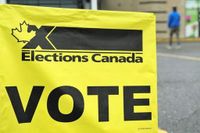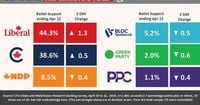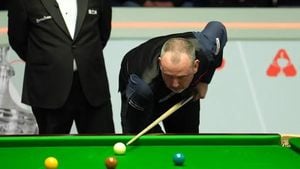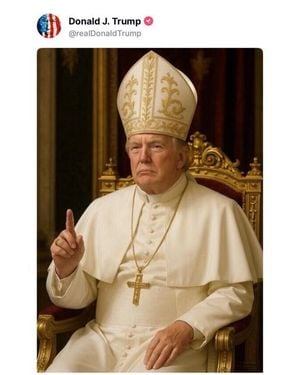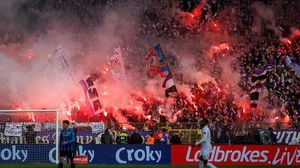As Canada gears up for its federal election on April 28, 2025, the political landscape is beginning to shift, particularly in Vancouver and Medicine Hat. Glen Motz, the Conservative candidate and incumbent Member of Parliament (MP) for the Medicine Hat-Cardston-Warner region, recently made headlines during his campaign, emphasizing that he remains unfazed by the projected polls that suggest a decline in Conservative support.
Speaking on April 12, 2025, while canvassing door-to-door in Medicine Hat, Motz expressed his belief that the upcoming election serves as a crucial test for Canadians. “Quite honestly, I don’t believe that for a second,” he stated, dismissing the idea that his party is losing ground. Motz's comments reflect a broader sentiment among Conservative supporters who are concerned about their party's standing in the polls.
Meanwhile, in Vancouver, polling data indicates a tightening race as election day approaches. A poll released on March 23, 2025, showed the Liberal Party of Canada leading with over 60 percent of respondents favoring them. However, as the campaign progresses, the Liberals' lead appears to be shrinking. The latest poll, conducted over the first two weeks of the official campaign, reveals that the Liberals have dropped to 54.6 percent of the local vote.
On the other hand, the Conservative Party has made significant gains, rising to nearly 29 percent of the local vote and approximately 34 percent of the overall vote among Vancouver Is Awesome readers. This marks an impressive increase of almost 13 percent for the Conservatives compared to earlier polling data.
In contrast to the rise of the Conservatives, the New Democratic Party (NDP) has experienced a decline, falling from 10.76 percent to 9.26 percent locally, which is a 1.5 percent loss. The Green Party, however, has seen a slight uptick, gaining about one percent to move from 2.6 percent to 3.4 percent.
The Vancouver Is Awesome poll, which surveyed a total of 2,082 readers between March 30 and April 13, 2025, included a sample of 702 respondents from within the community. The margin of error for the poll is reported at +/- 2.14%, 19 times out of 20, indicating a fairly reliable snapshot of voter sentiment in the city.
As the election date approaches, the shifting dynamics in Vancouver reflect a growing competitiveness in the race, particularly as the Conservatives gain traction. The results of the latest poll highlight the possibility of a more contested election than initially anticipated.
In the face of these developments, Motz's campaign continues to emphasize engagement with constituents, aiming to reassure Conservative voters that their concerns are being heard. His approach includes reaching out to both supporters and non-supporters alike, a strategy he believes will resonate as the election draws closer.
Motz's confidence in the Conservative Party's prospects is echoed by various party members who argue that the polls may not accurately reflect the sentiments of voters who are traditionally less likely to participate in surveys. This perspective suggests that the Conservatives could be in a stronger position than the numbers indicate.
As voters across Canada prepare to cast their ballots, the contrasting fortunes of the Liberal and Conservative parties in Vancouver serve as a microcosm of the broader political landscape. The election will not only determine the direction of federal policy but also reflect the evolving priorities and concerns of Canadians.
With each passing day, the urgency of the election becomes more pronounced. Candidates are ramping up their campaigns, and the stakes are high as voters weigh their options. Both the Conservatives and the Liberals are aware that every vote counts, and the outcome remains uncertain as the final days of the campaign unfold.
In summary, the upcoming federal election is shaping up to be a pivotal moment for Canadian politics. With shifting voter preferences and the potential for surprises on election day, all eyes will be on the polls as they close on April 28. Glen Motz's determination to engage with his constituents and the Conservatives' recent gains in Vancouver highlight the dynamic nature of this electoral race.
